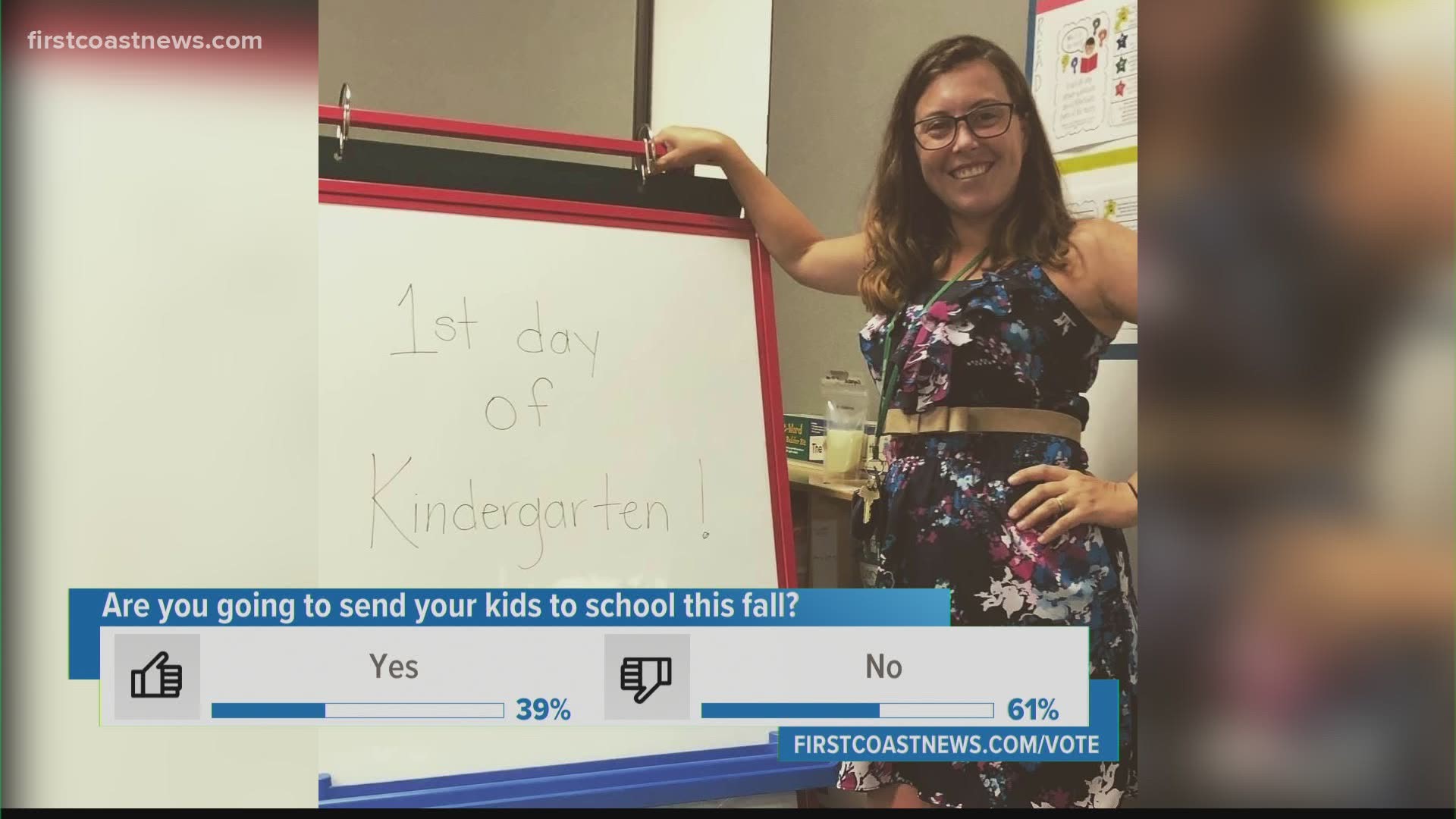ST. JOHNS COUNTY, Fla. — Hesitant. That’s how some teachers describe their feelings about going back to school during a pandemic.
St. Johns County is the No. 1 school district in the state when it comes to test scores. While the district is working to create safe environments, some teachers tell us they are still not sure how it will work this year.
"I have mixed feelings," Danielle Rapoza said. She will teach kindergarten and first grade to special needs students at Timberlin Creek Elementary
"We are all concerned," Megan Young said. She teaches English at St. Augustine High School.
"I miss campus. I miss my students," Rapoza said. "However, I am expecting our fourth child and I’m a little apprehensive about exposure."
They’re both wondering how they’re going to teach and keep themselves and their students safe when the St. Johns County schools reopen August 10.
"I’m not high risk," Young noted, "and I don’t live with anyone who is high risk. While I am concerned about safety, I’d rather me go back to school and wear a mask and socially distance than someone I know, who I work with, who is high risk or has kids who are high risk and them be at school."
The St. Johns County School system is offering parents four options for their children in the fall. Students can either go to a brick-and-mortar school, or go to long-distance learning that was done in the spring, or attend virtual school, or do home schooling.
Young questioned, "Are these same options given to teachers? Are teachers going to have the same option to teach in brick-and-mortar, distance virtual?"
Many teachers are also curious how sick leave will be managed.
Young asked, "If teachers go to school and contract the virus while they’re working and now must quarantine for 14 days, are they using 14 days of sick time? Is it unpaid leave?"
She is an officer in the St. Johns Education Association, the local teachers union. She said the union is discussing the issue of sick leave with the school district officials.
Both teachers say planning for this year is challenging because they really don't know what to expect.
Rapoza said her young special needs students will require more physical interaction, such as "independent functioning skills, toileting, and just daily basic eating needs."
She expects that will be challenging to do and still follow the CDC guidelines.
Even with so much uncertainty and hesitation during a pandemic, these teachers are determined.
Rapoza said, "We’re going to put on a smile and we are going to wear a mask and we’re going to be safe the way we can."
"We want to make sure that great learning still happens," Young added.

